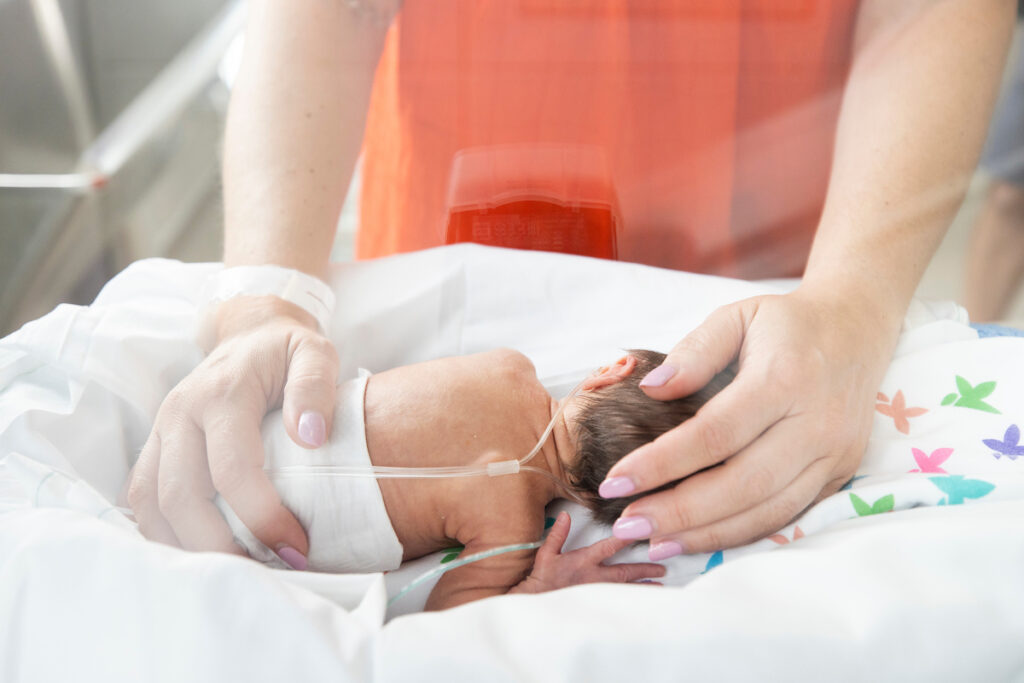Going Home - Recognising if your baby is unwell
Crying
All babies cry, especially when they are very young.
- Crying is a baby’s verbal form of communication.
- Babies cry for lots of reasons – some important, some less so, see ‘Reasons why babies cry’ below.
- When a baby cries, you need to check that they are okay. If your baby’s crying changes or doesn’t settle, then baby should be checked out by the GP.
Generally, the louder and more vigorous the cry, the more likely your baby is well. Babies who are unwell tend to moan and whimper rather than cry loudly.
Babies are never, ever manipulative. They only cry when they want help. They are not trying to control you or be assertive; they simply want to be looked after. You cannot spoil a small baby. Your baby will only ask for what they want.
Try to understand why your baby is crying – this will become easier as you get to know them.
Reasons why babies cry
- Having a wet or dirty nappy.
- Feeling too hot or too cold.
- Hunger or thirst.
- Being over-tired or over-stimulated.
- Feeling lonely or bored or in need of social contact, e.g. a cuddle.
- Discomfort.
- Trapped air (wind).
- Tummy cramps.
- Illness – this is a less common reason for babies to cry, but if your baby is crying and will not settle at all, it is important to have baby checked by a medical professional. Check for fever and infection and refer to the checklist Signs that your baby is unwell.
Do not leave your baby to cry
Long periods of unattended crying may increase your baby’s sense of isolation.
It is important to respond to a crying baby.
Suggestions to help if your baby cries
- Check that the crying is not caused by any of the reasons listed, see ‘Reasons why babies cry’ above.
- Be gentle with your baby. Sometimes a secure cuddle in a quiet environment may be all that your baby needs.
- Avoid over-stimulating your baby. Sometimes combinations of movement, sound, sight and touch at the same time may be too much, but on their own may be comforting.
- For babies born preterm, a gentle approach seems to work best. The usual baby-soothing combination of movement, sound and sight can be too much for a baby born preterm and may cause them to cry more.
- Babies born preterm can be overwhelmed and upset by cheery faces talking up close to them, being bounced up and down, or being sung to, rocked and patted all at the same time. The reason they respond like this is that they are still finding it difficult to handle more than one thing happening to them at the one time.
- Sitting still and holding your baby close to you in a peaceful quiet surrounding can be the most effective way to help settle him.
For babies born at term:
- Gentle back-patting or rocking, quiet background music or noise, singing softly, distraction with toys or making faces, warm baths, walks or car rides, may be helpful – but remember, for babies born preterm, these measures do not seem to work as well, even when your baby is well and strong enough to be at home.
- Be flexible, what works one day might not work the next.
- Try to follow a routine for your baby, see Establishing a routine for your baby.
- See also ‘Relaxation techniques for babies’ LINK.
- See also ’Activities you can do as a parent to comfort your baby’.
Remember
If the crying persists, sounds unusual or if you are concerned that your baby is unwell or not thriving, contact their GP, PHN or local children’s emergency department.
Coping with a crying baby
If your baby is difficult to settle it can cause anxiety and exhaustion, especially if the crying is difficult to interpret and there is no obvious cause.
If you find it hard to cope, seek support
- Ask for support from family and friends.
- Take time-out. Ask someone you trust to care for your baby to give you a break: to go for a walk, coffee or any activity that you enjoy. Even a short break can be beneficial: put your baby in their cot and take a rest for a few minutes.
- Contact your doctor or PHN.
Remember
- Try not to exhaust yourself.
- Your baby’s crying is no reflection on you.
- Asking for help is very important and is not a sign of failure.
- Don’t shake your baby.

